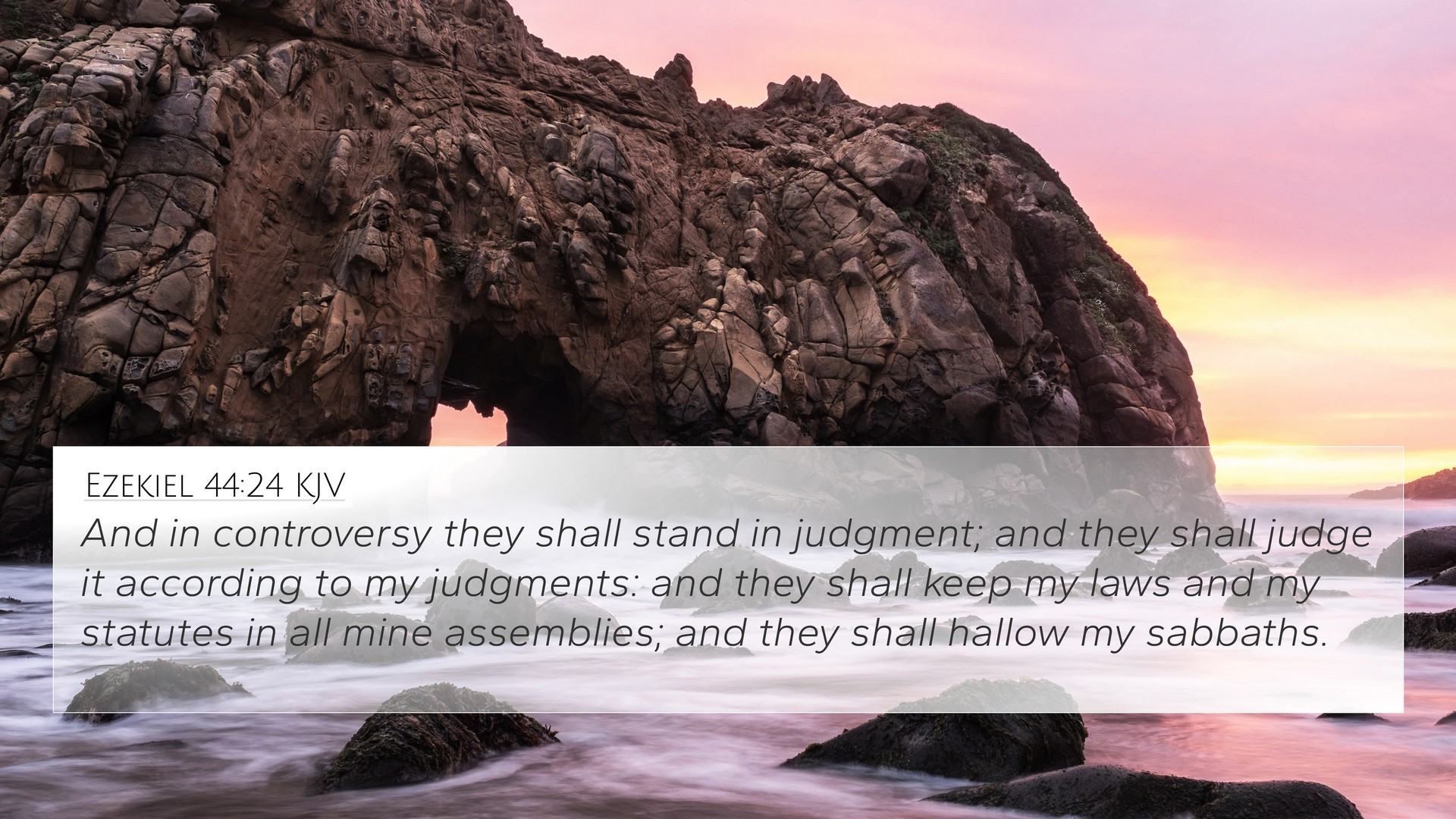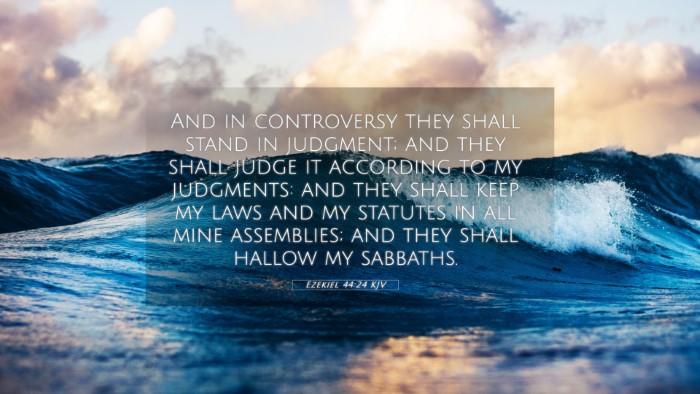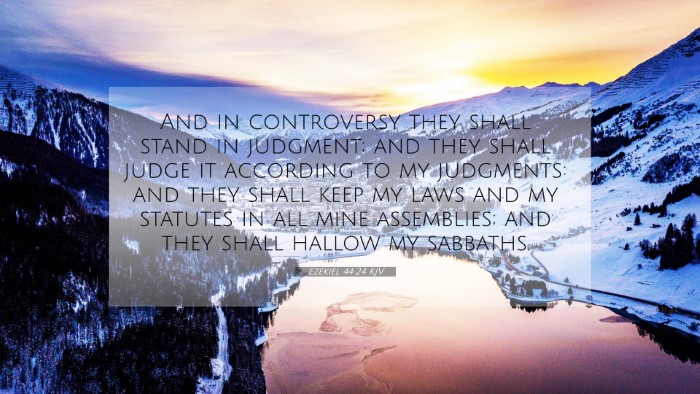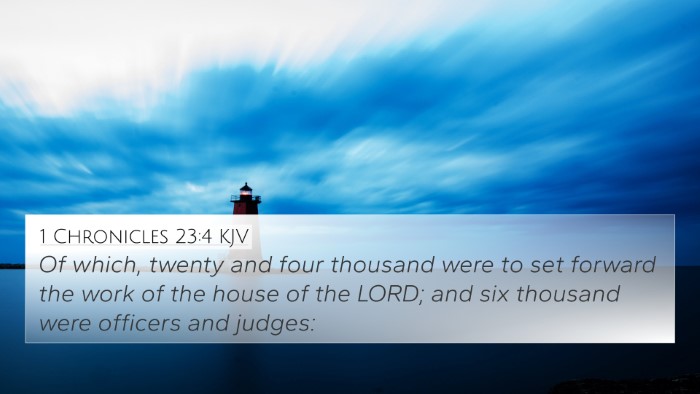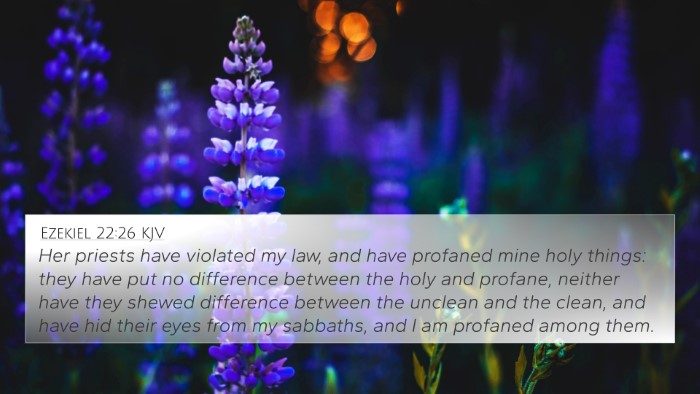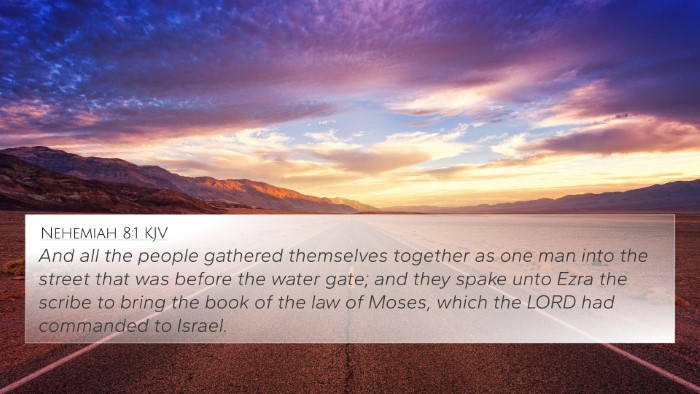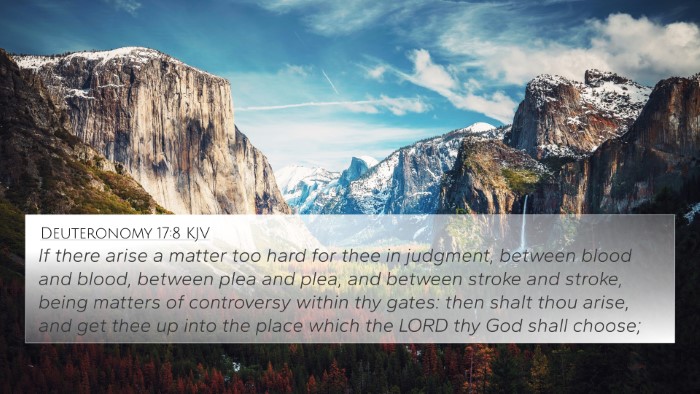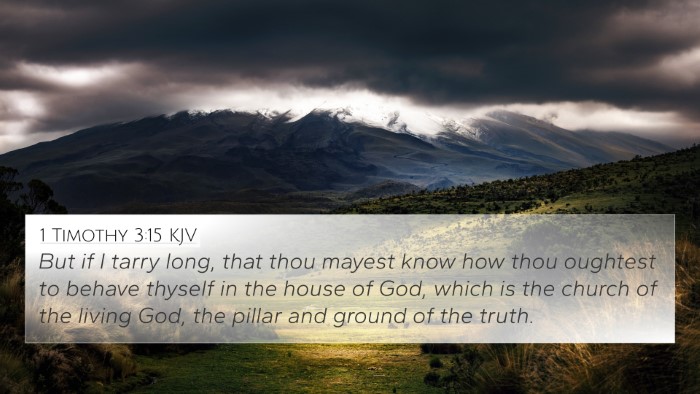Ezekiel 44:24 - Summary and Interpretation
Bible Verse: Ezekiel 44:24
Understanding the Verse: Ezekiel 44:24 highlights the responsibilities assigned to the priests regarding judgment and decision-making within the community. This verse underscores the importance of divine instruction in matters of governance and righteousness in the worship of God.
Insights from Public Domain Commentaries
-
Matthew Henry’s Commentary
Matthew Henry emphasizes that the priests were to discern righteous matters and guide the people according to God’s law. He suggests that their role was not only to offer sacrifices but to govern the people with integrity, ensuring that the community followed divine precepts. This underscores the principle that spiritual leaders must also be moral guides, reflecting God’s justice and truth.
-
Albert Barnes’ Notes
Albert Barnes highlights that the priests were to act as judges in disputes and teach the people the statutes of the Lord. His commentary suggests a dual role where priests are required to uphold justice and maintain holiness within the camp of Israel, serving both as spiritual leaders and societal regulators.
-
Adam Clarke’s Commentary
Adam Clarke points out that not only were priests given responsibilities of teaching and judging, but they were also expected to maintain a close relationship with divine authority to ensure their judgments reflected God’s will. His analysis indicates that this divine guidance was essential for the establishment of a just and righteous society.
Bible Cross-References
For a deeper understanding of Ezekiel 44:24, several Bible verses connect thematically and contextually:
- Deuteronomy 17:8-11: This passage talks about appointing judges and priests who can give a righteous judgment, echoing the roles described in Ezekiel.
- Leviticus 10:10: It mentions differentiating between holy and common, and clean and unclean, similar to the roles of discernment assigned to priests.
- Malachi 2:7: The priests’ lips should preserve knowledge, and people seek the law from their mouths, establishing their role as divine adjudicators.
- Isaiah 1:17: This verse calls for learning to do good and seeking justice, resonating with the responsibilities of priests in Ezekiel.
- Jeremiah 18:18: It reflects upon the roles of prophets and priests in advising the people, linking to the communicative functions assigned in Ezekiel.
- 1 Peter 2:9: This verse addresses the royal priesthood, indicating that believers now share in these priestly duties as representatives of God's moral and judicial order.
- Hebrews 5:1: It relates to the high priest's role of dealing gently with others, similar to the judgment responsibilities emphasized in Ezekiel.
Thematic Connections and Interpretations
The thematic connections present in Ezekiel 44:24 extend beyond the immediate context, leading to an assessment of how spiritual authority is linked to moral responsibility. The analysis of this passage in conjunction with other scriptures reveals various interpretations:
- Importance of Divine Guidance: The underlying reliance on God’s statutes emphasizes the necessity for spiritual leaders to seek divine wisdom before rendering judgment.
- Justice and Righteous Governance: As representatives of God, priests hold a responsibility to ensure that justice prevails in society, a concept reiterated throughout the Bible.
- Educational Role of Priests: Teaching the people about God's commands reflects the significant responsibility spiritual leaders bear in nurturing faith and moral character within the community.
Conclusion
Ezekiel 44:24 serves as a poignant reminder of the role of spiritual leaders within the context of God's community. The combined insights from Matthew Henry, Albert Barnes, and Adam Clarke frame a multi-dimensional view of the priesthood, highlighting their responsibilities in judgment, teaching, and representation of divine justice. Through cross-referencing and exploring connections between related Biblical texts, believers can enhance their understanding of spiritual authority and justice within the framework of God's law.
